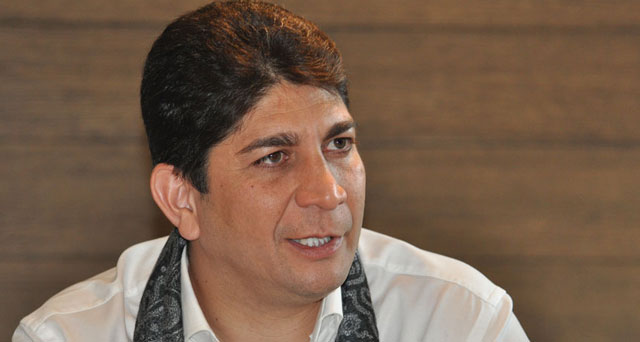
Delays by government in creating a policy for the licensing of additional spectrum needed to build next-generation mobile broadband networks forced Vodacom into making an offer to buy rival telecommunications operator Neotel.
Vodacom CEO Shameel Joosub says mobile operators require additional access to spectrum, and MTN’s current negotiations about a tie-up with Telkom and Vodacom’s offer to buy Neotel — valuing the latter at R7bn — are about the industry “making a plan” in the absence of government action.
Joosub warns that if this consolidation isn’t allowed to happen, the rapid growth in data that the mobile operators have enjoyed in recent years will evaporate. He says it’s also important it happens to “transform the country”.
He warns, however, that the MTN/Telkom and Vodacom/Neotel deals do not represent a solution in themselves. “The solution is the allocation of spectrum. But that will only happen when we sort out the broadcasters in the 800MHz band.”
South Africa’s migration from analogue to digital terrestrial television — which will lead to the freeing up of the 800MHz band, also known the “digital dividend”, for broadband — has been delayed for years, most recently by the war between MultiChoice and e.tv over whether government-subsidised digital set-top boxes should contain a control system.
The Neotel acquisition, if it is allowed to proceed, will give Vodacom access to bandwidth in the 800MHz, 1,8GHz and 3,5GHz spectrum bands. Neotel is the only operator that has access to spectrum at 800MHz, which is still used by analogue broadcasters. The operator provides code division multiple access or CDMA services using the spaces between television channels, and Joosub says Vodacom is keen to utilise that spectrum, too, presumably for more modern and speedier 4G/LTE services.
Neotel began life in 2007 as the “second national operator” to compete with Telkom. Though it’s had some successes in the corporate and wholesale telecoms markets, it has not had a big impact on the consumer market, where Telkom continues to enjoy a monopoly in the fixed-line “last mile” into people’s homes.
The Vodacom deal values Neotel at R7bn. Vodacom has offered to buy out 100% of Neotel from shareholders Tata Communications and its black economic empowerment partner, Nexus Connection.
Market watchers have cautioned for some time that Vodacom could face a number of regulatory hurdles in acquiring Neotel, not least of which is getting the necessary approvals to transfer the smaller operator’s spectrum assets.
But Joosub says Vodacom’s intention is to keep Neotel as a separate operational entity. “We will integrate our fixed-line business into Neotel, and will apply for a transfer of ownership, not a transfer of spectrum. There is a big distinction between the two,” he says.
“We’d like to keep Neotel as a standalone entity. Will also give us more focus in terms of our fixed strategy going forward.” — © 2014 NewsCentral Media

